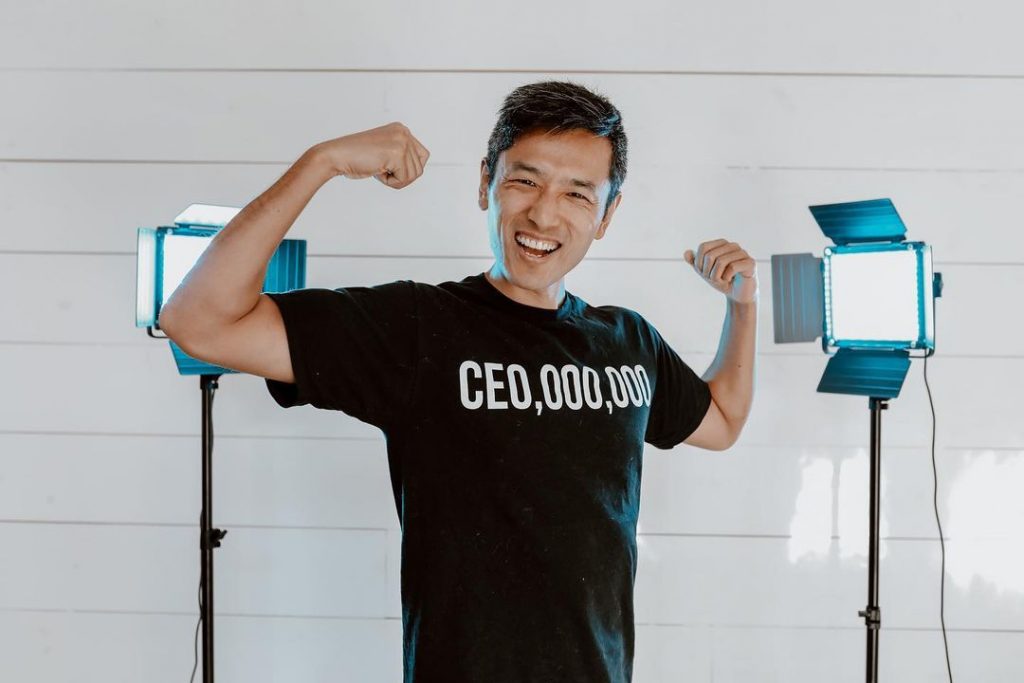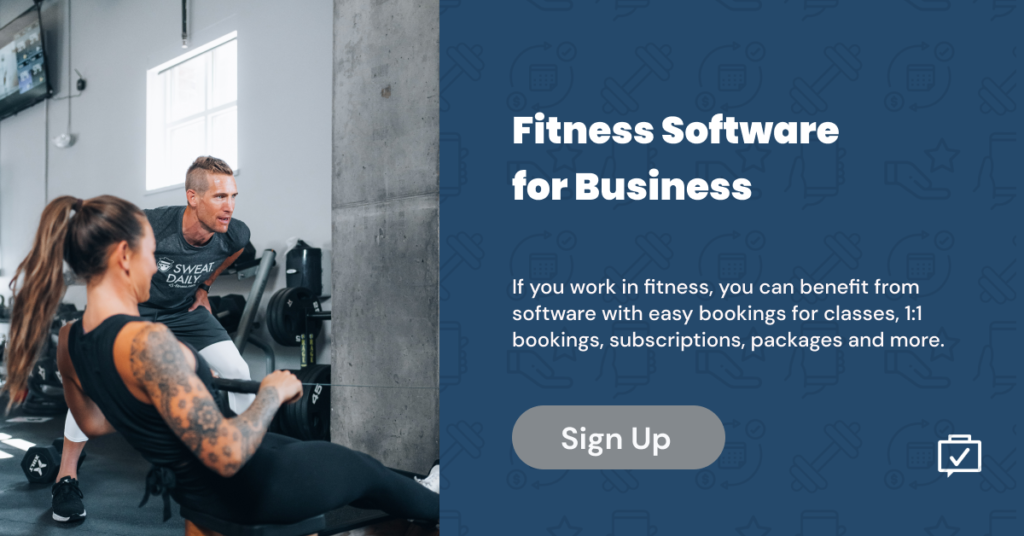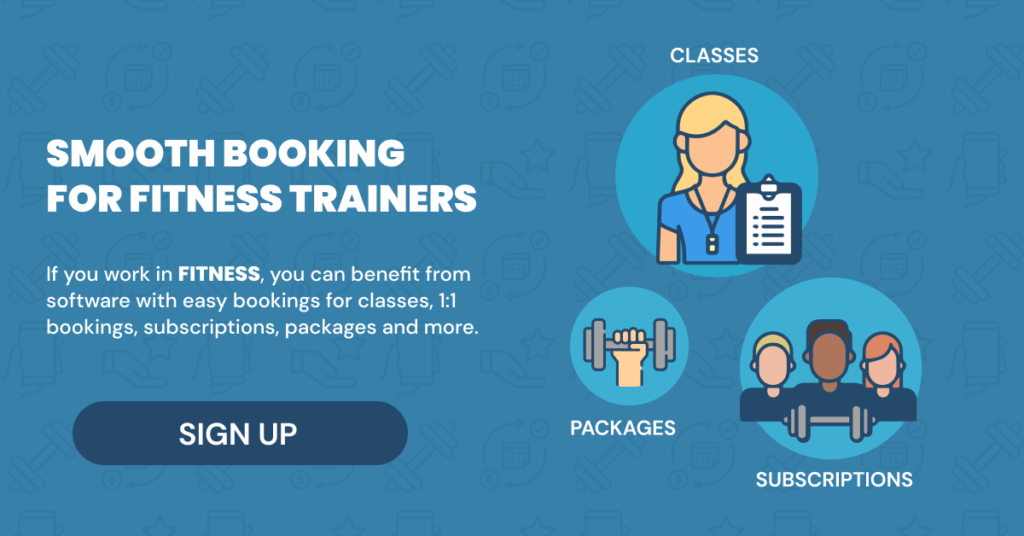Episode 10 The Fitness Entrepreneur’s Journey with Eddie Zhang
Eddie Zhang opened a gym and discovered that the success of his space was dependent on the success of the trainers. That started a long road of becoming an amazing fitness coach helping trainers around the country succeed in getting booked solid and making their goal income. Listen for an amazing story and some great tips on building a business. Watch the episode on YouTube or subscribe on the podcast service of choice!
Listen on:
Follow PocketSuite:
Follow Eddie Zhang:
Website: http://www.TrainingGroundsGym.com
Instagram: https://www.instagram.com/iameddiezhang/
Full Booked Solid Podcast Transcript:
PocketSuite:
Welcome to the Booked Solid Podcast, a place for anyone with clients. I am your host, Hansa Bergwall. And thank you so much for joining us yet again. We have a fantastic guest for you with Eddie Zhang.
Eddie Zhang:
Hello.
PocketSuite:
He is a business mentor for fitness trainers in Columbus, Ohio. He’s a gym owner and he’s fantastic. So thank you for joining us today, Eddie.
Eddie Zhang:
Oh, pleasure to be here.
PocketSuite:
So why don’t you start at the very beginning for us. How did you get started on your entrepreneurial journey starting your first business?
Eddie Zhang:
Man, that is a great question. I have to rewind all the way back to probably around year 2020. No, sorry, year 2010 to 2011. Man, it’s been a long time. Back then I was just first starting to get into fitness and I was basically working at just a normal cubicle job. I literally had a cubicle and I was clocking in, clocking out my 40 hours every single week, and it just felt like something was missing. I was just like, “Man, is this really what the rest of my life is going to look like where I wasn’t really passionate about what I did?” It was was my first job. So you’re excited to get your first job and jump into the real world, and that quickly fades. The excitement fades real quick, and then you just start thinking, “Man, is this really how I’m going to spend the rest of my life?”
So I was working with a personal trainer at the time. I mean, he had his own struggles. He was struggling to make ends meet and he didn’t have a consistent client base or anything like that. But something I just noticed was that he was just really passionate about what he did. And on top of that, he was in a lot of ways more in control of his life than I was. That’s something I noticed where he could control his own schedule better. He could just make decisions that only affected him and such. That was something I was actually really envious of, and it kind of just opened my eyes to the power of entrepreneurship and running your own business and all that. So just by spending more time with him, the more people you spend your time around, you just start to think more like them.

I started wanting to become more a business owner. So I saw that he did not have his own gym and he wanted to, and he got all the money together. He pieced out all the equipment, found a location, and right before he was about to pull the trigger on opening his own gym, he kind of hesitated and he shared with me that he didn’t really want to spend his time managing a building and managing a gym. He wanted to be a coach, he wanted to be a trainer, he wanted to be hands on the floor working with people and such. So he kind of took a step back and that’s what got me thinking. In Columbus, Ohio back then, there was not a lot of places where a trainer could just have a gym to run their own business. And most of the gyms around here, they want to take a percentage of the revenue that you generated. They wanted more control over your schedule, what time you could use their gym space, what time you can’t and all that.
So there really wasn’t a lot of options for him. And that just really got me thinking, what if there was a gym specifically for coaches that did not want to personally guarantee hundreds of thousands of dollars, spend tens of thousands out of pocket to start their own gym? What if I just did it for them? What if I built the gym and I took care of the gym? And all they would have to do is just run their business and just focus on coaching their clients from there. So that’s kind of how my first business Training Grounds got started. You can get me talking and I can keep going and going, but I’ll just stop there.
PocketSuite:
Yeah, that’s a great story. I’d love to hear about your first year of Training Grounds, how you got your first coaches to sign up and use your space and stuff like that.
Eddie Zhang:
Oh man. Yeah, that’s a story in itself. So obviously we had our trainer who needed the space, but we really started to run with the idea. I had one business partner of mine, he was my roommate at the time, and we were both working with him. So both of us wanted to try our hand at starting a business and such. We started connecting and talking with every coach in town. All the trainers at local gyms, all the trainers on social media, every trainer that we could get ahold of. We were just cold pitching basically our idea. We didn’t have anything to sell because there was nothing there yet. It was just an idea. And everybody was like, “This is a great idea. Oh my gosh, I would use this space. I would absolutely do it.”
So we really ran with it, and we put together some money, raised money from friends about our great idea. I don’t even know how I convinced people to give me money for this. We raised $145,000 from various friends, some invested as little as $5,000, some invested as much as $50,000. But we were like, “This is the next great big idea.” And then when we went out and we finally found a location and we deployed the money and we got everything set up, out of all the trainers that said they wanted to do it, two showed up. One was my coach, the other one the was just one coach. We had 30 or 40 people… Because we were trying to get bank financing for this and banks don’t finance startups, by the way, guys. But we were trying to show them, “Look, we already have 30 or 40 customers wanting to do this.” And out of the 30 and 40 signatures that we had, only two followed through. Only two followed through there.
PocketSuite:
Oh my God, that is such a fascinating story. So then what did you do? All these people who are like, “Yeah, I want this.” And then [inaudible 00:05:47].
Eddie Zhang:
Yeah. It kicked our butts into overdrive. We realized that it was just like, “Okay, well, we have this space now.” And we’re bringing in maybe not quite $2,000 a month and our overhead was $10,000. We had a little bit of a runway because we set aside about three months worth of expenses, $30,000 in a bank. And we were like, “We’re about to blow through this very quickly.” When you have a clock, that 90 days goes by very, very fast.
PocketSuite:
Wow.
Eddie Zhang:
Yeah. We went back to reaching out to trainers again, and we hit up every single trainer and we were just like, “Hey, just let you know that we’re here.” It was basically the digital version of door knocking where on social media, we just hit up every single coach that we could ever just get in contact with. We invited them over for a tour of the gym. There was no pressure or anything. We were just like, “Hey, if you ever need a place or know a coach that might need their own gym space, keep us in mind.” Yeah, we had a lot of people come by and just check out the gym.
I used every social media platform possible. We had Instagram, we had LinkedIn. I signed up for whatever the pro version of LinkedIn was back then where you could search people by their job titles. So anyone that was a trainer that lived in Columbus, Ohio, I was cold messaging them. Everyone on Instagram that tagged themselves flexing at a gym, I would message them. I would actually go through this list weekly. So on Mondays, it would be all the lifetime fitnesses. Who posted themselves in the last week. If they looked like a coach, I was shooting them a message. If anyone new showed up, then I’d shoot them a message.
Then it was the Planet Fitness Day, and then there was the Small Gym Day or whichever. And I just kept reaching out to people and we ran through our reserve, and then we had to basically put our own money into it. So thankfully, my partner had a nice healthy doctor salary that he was helping with, and I still actually worked my full-time job at the same time too. So both of us were just contributing anywhere from a thousand to some months, $3,000 a month a piece into this place in order to keep it afloat. And slowly but surely, we started increasing our client roster. We had trainers coming in. We had trainers dropping off. I don’t think we broke even for… Well, I’m sorry, not broke even. We didn’t reach equilibrium where our revenue was equal to our expenses for two and a half years. Yeah.
PocketSuite:
Oh my God. That is some real staying power.
Eddie Zhang:
Yeah. Well, I mean, there was really no option. It was just like, “Well, we either call it quits here, and we’re on the hook for about half a million dollars of personal guarantees in terms of equipment, in terms of the lease space.” I knew I’d have to declare bankruptcy. It was just like, “Well, it’s either we quit now or we keep pushing ahead.” I think what really helped though was we saw that we could get coaches. It just wasn’t happening as fast as we wanted, but we were able to get coaches. It was a good idea, and it was a very sick, sick setup for the coaches. so we were able to get coaches to come and try us. Just the problem was not many of them stuck around, but we were slowly getting more than the coaches that were dropping off.
PocketSuite:
Yeah. I guess it’s hard to get people to really change their habits. People don’t always factor that in. Thank you for sharing. Entrepreneurial stories often involve those sort of [inaudible 00:09:21].
Eddie Zhang:
Oh yeah.
PocketSuite:
It’s good to hear them. Just so that people remember to have that [inaudible 00:09:27].
Eddie Zhang:
I don’t know a single entrepreneur that doesn’t have a rocky period. It may not be a rocky. I’ve heard people have rosy starts, but then rocky middles, rocky ends. If you’re listening and you’re in a rocky period right now, that’s totally normal. In fact, get used to it.
PocketSuite:
So at some point in there, I know that between being a gym owner, you became really invested in the success of the trainers who were at your gym and became a business mentor for these people. Because their success was tied with your success. Can you talk about how that started for you?
Eddie Zhang:
Actually, that’s a great question because that’s pretty much the continuation of the story itself is in order to… The way we looked at it was like, “Okay, we can get new trainers to come in here and try our gym all the time.” But our turnover rate was very high. Our turnover rate on average was six months. Meaning some coaches would try us for a couple months maybe and then drop off. Some coaches would-
PocketSuite:
When they dropped off, would they leave just because their business wasn’t strong enough to afford [inaudible 00:10:35]?
Eddie Zhang:
Yeah, exactly. It was just that. They weren’t making their ends meet. They weren’t covering their living expenses. So many of them, they were part-time trainers trying to make it full-time. Some of them were servers on the side trying to just cover the difference in order to live their lifestyle. Going through that myself at the time, I understood why it made somebody really think maybe I’m not supposed to do this and such. The way that we looked at it was like, “Okay, every time we seem to get a new coach in here, we’re barely keeping our head above water.” Because basically, a client would drop off. And I know any coaches listening right now probably remembers this, where anytime they seem to sign on four or five new clients, it’s three or four more drop off. It’s two steps forward, one step back and such.

So I started to really think about it and I was like, “Well, what if there was a better way to do this? What if we could help these coaches? Instead of constantly trying to sign up new clients for ourselves, new coaches, what if we could actually help them run their business and they actually stayed around longer?” They didn’t drop off. And that way we wouldn’t always be looking for new coaches and such. So that’s kind of where the idea of the business mentorship started. Within just Training Grounds with only the trainers at my gym, I reached out to all of them actually and saw, “Does anyone want help trying to grow their business? Totally free. I’m not charging anybody anything. I’ve just got some ideas that I think might be able to help and such.” Yeah, we started working directly with the coaches on basically what they were doing wrong on the business side of things.
Because I’ll tell you, what I quickly came to realize is that many of these coaches were incredible coaches. They know everything that there is to know about exercise science, human physiology, nutrition, macros. They know all that kind of stuff. But what they didn’t know was business. They didn’t know marketing. They didn’t know sales. They didn’t know human psychology. In fact, I’m going to throw this out there. They didn’t actually know what coaching was. A lot of these coaches think coaching is simply just, “Here’s a set of instructions, here’s your workouts, and you go off and do them. Or I’ll watch you go do them and tell you what to do.” And that, my friend, is not actually what coaching is. You’re going to get me started on a mini rant here.
PocketSuite:
Coaching [inaudible 00:13:08].
Eddie Zhang:
I’ll keep it short and simple, but if you’re actually going to coach someone, it’s not just giving somebody a set of instructions. Coaching is actually helping them. You have to actually help them execute on those instructions. Now, 99% of people, there’s nothing physically stopping them from following your instructions. What’s stopping them is always these limiting beliefs and these limiting ideas in their head, whether it is, “Am I good enough for this? Am I not good enough? Does this sound salesy? Does this sound pushy? What will other people think of this? What if nobody responds to my offer?” It’s head trash. There’s all this head trash inside of their head about what they should or they shouldn’t do, or what’s socially acceptable, what’s not, or whichever. So real coaching is more of… It’s almost like it’s psychology. It’s almost like what a therapist does.
Any fitness coaches listening to this will understand when I say that many times, they’re more a therapist to their clients than they are anything else. And that’s actually more in alignment with what coaching is because there’s nothing special about this set of instructions that any fitness coaches give their clients. Anyone can give them workouts. Anyone can give them nutrition advice. Anyone can give them these set of instructions. But if you can actually help your clients overcome any limiting beliefs or any limiting blocks that they have up here in their minds, that’s actually when they can actually start physically going out and following your instructions. Yeah. “Oh, I’m too busy. Oh, I don’t have time.” That’s not true. That’s actually not true at all.
PocketSuite:
Yeah. I mean, I get it with the in and out of the gym myself. It’s so hard to keep to a schedule. Okay. So explaining to people… Just talk about some early successes you had with a coach who wasn’t quite getting there in terms of their business and how you helped them turn it around.
Eddie Zhang:
Yeah. Actually our first coach, her name was Caitlyn. And I’ll actually share just a couple things that anybody can take that we helped her with in order to get them to see more results and such. So Caitlyn, like many coaches, they kind of just sat around and they were just hoping and praying that new clients would just show up. So they would post on social media, they would post photos of themselves, inspirational captions, be like, “You can do it,” those kind of things like that. But at the end of the day, nothing seemed to consistently work. Sometimes they would post something and a client would show up or somebody would reach out, but nothing was really consistent. When it comes to business, there is actually a science behind this where if you look at any business out there, they’re able to actually predict how many clients they’re going to get by doing whatever set of instructions or whatever strategy that they go out and implement.

But most people don’t have the right strategy. They don’t have the right system. They just simply see what other people are doing and then they copy it, and then they just sit back and they just hope and pray that it gets results and such. So it’s not necessarily that she was doing anything wrong. She was posting and she was showing up on social media and all that, but she wasn’t saying the right things. So for example, a lot of fitness coaches like to talk about their workouts and their nutrition and their accountability and things, but that’s actually not what gets people’s attention. So they’re doing the right things by posting and talking. They’re just not posting and talking about the right things. They’re posting and talking about all the technical things inside of their program about how they can help with this and how they can help with that. But what we did with her is we got her to stop doing those things and start speaking directly to… She wanted to work with more young women.
I actually don’t really like this word because… I don’t really like this word, but it is the word that people understand the most is, what is a trigger for the people that you’re trying to help? What is something that literally, when you talk about it, it’s bringing up past trauma, it’s like a trigger? And when I say past trauma, I don’t mean, “Oh my gosh, you were abused or you were a victim of domestic violence or whatever.” Yes, that’s definitely a form of past trauma, but trauma is really anything that upsets us about anything. So when it comes to fitness clients, what are the triggers that are getting people to basically stop their scroll and pay attention because you’re literally triggering them? So we got her to dial in on what the triggers for her audience we’re getting.
So some of these triggers might be… Since she was working with many young women at the time, they’re just coming out of college. A lot of these women were thinking that back in college, I could eat whatever I want. Back in college, I was fitting into all these small clothes. Now that I’m entering the workforce, all the clothes I’m buying are bigger. I have to watch what I eat more. So now she started posting and talking about these things. So instead of just workouts and nutrition, she’s talking about how uncomfortable it is to go out and buy new clothes as you enter the workforce, about how you’re trying to impress the people that are at your job, but nothing that you seem to put on fits you anymore. Nothing looks good on you or whichever. These are the things that her clients or audience were actually experiencing.
She’s triggering them by bringing up these past experiences that they’re encountering. From a human psychological point, they literally cannot ignore it. So instead of talking about workouts and nutrition and things that nobody cares about, she’s talking about the things that are actually triggering her audience. And all of a sudden they stop scrolling and they pay attention to what she’s actually saying. Because social media is nothing more than just a constant stream of information at you. And if you want your information to stand out, you have to get them to stop scrolling because most people just scroll through Instagram, double tap, scroll through, double tap, double tap. But they don’t actually pay attention to what you’re saying.
PocketSuite:
Yeah. So if anyone wants to try this at home, this is called persona based marketing. And I can attest. I’ve been marketing for 20 years that it’s very effective. And the principles being used here are that instead of just putting out general marketing information for everyone, you think about your perfect client. Maybe this is someone you know and is already a client, and you speak directly to them and you talk about the experiences they’ve had and that they’ll understand and that they will know are for them because that is your perfect client. That person will stop and go, “Oh, this person is talking to me, not to Tom, Dick and Harry over there on the other side of town that really are in a totally different life position.” And sometimes people don’t want to do this because they want to just say, “Well, everyone could be my client. And so I don’t need to talk specifically to this one specific group.” But if you talk to everyone, everyone will ignore you.
Eddie Zhang:
Nobody hears. Yeah.
PocketSuite:
You talk to someone specifically, they’ll pay attention and it really works.
Eddie Zhang:
Yeah. And the funny thing about that is too, is that even though you’re speaking to one type of person, you end up working with a lot more people other than that type of person too. And what generally happens, especially when it comes to Caitlyn, for example, she started speaking to these young girls who were entering the workforce and all that kind of stuff. But she started getting other people who could start resonating with… Maybe they weren’t picking out clothes for their workday, but they were picking out clothes for a family event or something like that. Then also her clients started referring people to her where it’s just like, “You got to work with my coach. You got to work with my coach. She’s been so helpful. She’s been so helpful.” So they start referring other people to her that weren’t necessarily who she was speaking to directly, but indirectly she was getting more clients as well.
So it’s funny how a lot of people don’t want to cut out a portion of the population because they can serve everyone, but that’s exactly what they end up doing when they don’t speak specifically enough. And yet when they speak specifically enough, they end up working with more people in the general population. So yeah, it’s funny.
PocketSuite:
Yeah, because it’s a real need that some people have, and sometimes more people will identify with that than you’d think from the vision that you had. Yeah, it’s really effective. And it’s also just helpful. I’m talking to you right now, not some gray amorphous cloud, and therefore this conversation is more pointed and interesting than if I were just talking into the ethers. I’m talking to you. So whenever you can imagine a you right in front of you that you’re talking to, you’ll speak more naturally. You’ll speak more specifically. It’ll just be much more engaging for anyone who happens to overhear.

Eddie Zhang:
Yeah. For most coaches, if you’re not sure where to start with that, most coaches start with just themselves. It’s like I’m speaking to the me from 5, 10, 15, whatever, two years ago that first got into fitness. What basically life experience… What can you post and what can you say that will basically trigger someone just like yourself from before you became a coach when you got into fitness? And so for her, that’s what made it so much easier for her because she was literally just speaking to herself. So it was very easy for her to come up with, “These were the things that I’m going through and these are the things that I’ve experienced, and these were my triggers.” And lo and behold, there were many other young girls just like her that really resonated with it.
PocketSuite:
So what happened with her business? Did she succeed? Is she still training and having a great time?
Eddie Zhang:
Yeah. Actually, this was back in 2018 and within 90 days… It was four months. She went from about four, $5,000 a month to over $10,000, $11,000, $12,000 a month from there. And then she-
PocketSuite:
That’s a six figure income for a year. That’s great.
Eddie Zhang:
Yeah. No, it was really awesome. Believe it or not, she almost hit 2 million last year. So now she has a team.
PocketSuite:
What?
Eddie Zhang:
Yeah, now she has a team of… She had a team as high as eight coaches, a total of almost 18 people in her company between salespeople, virtual assistants, coaches, all that kind of stuff. She’s actually scaled back down a little bit because she’s still learning how to be a business owner and her problems are no longer getting clients, lead gen, marketing sales. Her problems now these days are just hiring correctly, how to make sure the team works together well, the culture of a team and those things. So she’s still going through growing pains, which I’m going to tell every entrepreneur, every fitness coach, listening that your growing pains never really stop. They just look different. Yeah.
PocketSuite:
Yeah. I’d rather have the growing pains if a multimillion dollar business than just trying to meet myself. So this sounds like a great success and trajectory. I’m so happy for her. I know from your story that being a business coach for fitness trainers has actually in the subsequent years become a bigger part of your business then the gym itself.
Eddie Zhang:
Yes.
PocketSuite:
Can you talk a little bit about that transition?
Eddie Zhang:
Yeah. Once we started helping all the coaches in our gym, it started with Caitlyn and quickly we were helping almost every other coach. I would say about maybe half the coaches in our gym. The other half, I’ll just be honest, they just weren’t trying to be full-time business owners. They loved coaching, they wanted it to stay a hobby, but they openly admitted, “I don’t want this to be a full-time thing and turn it into more like a job.” They’re just like, “I just like doing this.” The ones that wanted this to be a full-time thing for them, our average retention rate went from, like I said, six months to basically over a year.
In fact, people didn’t leave unless they outgrew our space. We had seven coaches basically leave because they outgrew us and they needed their own gym. So they actually started their own gyms because they were outgrowing this gym space that I was renting to them. So we hit full capacity and we basically stayed anywhere around 90% capacity from 2018 all the way through. Even today. I would say today we’re about 80% capacity.
PocketSuite:
That’s really interesting because you started with this idea that these coaches just need a space when really what ended up being the real business was like a place for mentorship and business growth.
Eddie Zhang:
Yeah. Just having the space, I quickly realized, well, if you have the space, it’s not enough because you’re not going to be able to keep the space if you don’t know business and you can’t make money. That was the lesson that I learned was that there was a lot of great coaches out there, but not enough coaches are business owners. They don’t think like a business owner. So simply providing them with the equipment, providing them with the space is very much if a fitness coach just provided somebody with the workouts and, “Here’s a program. Here, go off and follow them.” But that’s not what your clients actually need. Your clients actually need your coaching in order to stay accountable. What am I doing wrong? How do I fix this? All that. So yeah, I quickly realized it was the same thing for us.
PocketSuite:
Okay. Tell me about how the business mentoring became a part of your business offering.
Eddie Zhang:
Oh, yeah. After we started helping the coaches in our gym and their business was stabilized and our gym was basically full, I was like, “Man, I know that there are other coaches out here.” We only helped seven or eight of the coaches here. I was like, “There’s definitely other coaches out there. There’s other trainers in our city. There’s other trainers in other gyms.” We decided to open up our mentorship for basically everyone out there that wanted our help. So we started marketing to just coaches around the city, and coaches know other coaches, coaches know other coaches on social media, just coaches know other coaches. So we started having a bunch of people start asking us, “Well, how are you helping your coaches make six figures? I never even thought we could make six figures and such.”
Yeah, we just started marketing the same channels on social media, but we just cast a wider net. Instead of focusing all of our marketing and our outreach on just local Columbus, Ohio, we started looking at other cities. We started asking just the coaches, “Hey, do you know anyone that might need help with their business?” It’s literally as simple as that sometimes. You just ask, “Do you know anyone that’s running a business and they’re struggling? Love to give them a couple strategies that they can use to get new clients.” And they’re like, “Oh, my friend runs a business. I don’t know what he’s doing to get clients.” We reach out. Sometimes they’re appreciative of… Literally, we’re just trying to give them value. So sometimes they’re appreciative of it. Others times they’re like, “No, I’m good on my own,” and we leave them alone. But we do that enough. Yeah, we filled up our mentorship to about 30 or so coaches at one point just helping them fix their business basically.
PocketSuite:
That’s really cool. Well, thanks so much for sharing your entrepreneurial journey and how a business space for trainers became a business mentorship and business coaching business. I think that’s so interesting. What you think people need is often not what they really need, and I love stories like that. So if anyone listening at home wants to get in touch with you, maybe is interested in business coaching for their fitness program, how would they do that?

Eddie Zhang:
The best place to reach out to me is on social media, so I’m still very much on Instagram. That’s my favorite platform to use. So I am @EddieZhang on Instagram. It’s really where I spend most of my time. I’m on Facebook a little bit too, but I spend like 90% of my time on Instagram.
PocketSuite:
So we’ll definitely include your Instagram handle in the show notes.
Eddie Zhang:
Yeah.
PocketSuite:
Thank you everyone for joining the Booked Solid podcast, a place for anyone with clients. Again, the best way to support the podcast, of course, is to run a business on PocketSuite. We make it easy to run a client-based business, and we help people succeed. On average, people make 30% more because they run it on PocketSuite. Also, we appreciate those five star reviews or telling anyone who might want to hear it about the podcast. And of course, Eddie, it’s always such a pleasure to talk with you. Thank you for joining us today.
Eddie Zhang:
Absolutely. If anybody’s still listening at this point, I’ll throw in a little bonus. If anyone wants to just get a couple of our strategies completely for free, just DM me PocketSuite, and that way I know you listened to the podcast and I’m more than happy to give you one or two of our top performing lead gen strategies.
PocketSuite:
Awesome. Yeah, do that. I think that would be great. All right. Thank you so much, Eddie.
Eddie Zhang:
All right. No problem.






